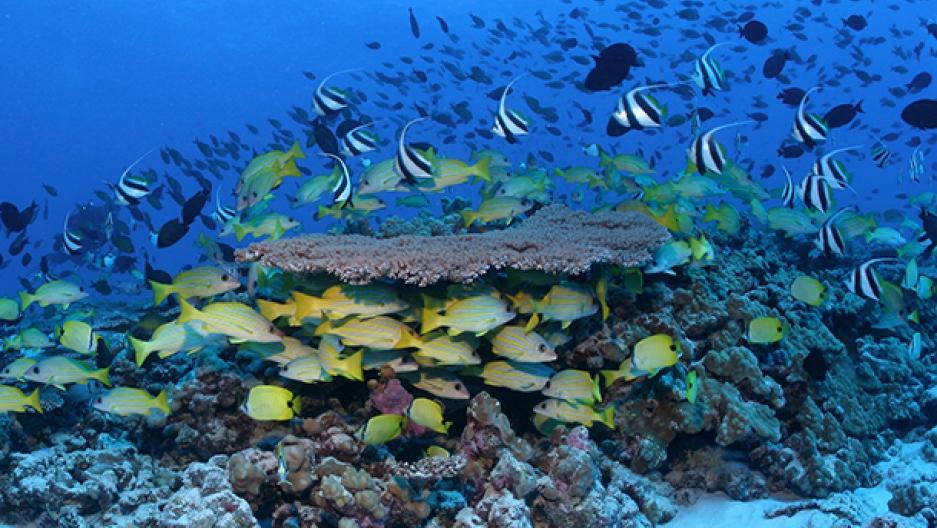
~ Twenty-five pesticides that are banned in more than 30 countries are still used in the U.S.
~ Pesticides such as atrazine, dimethenamid, permethrin, 2,4-D and 2,4,5-TP are endocrine-disrupting chemicals that can lead to poor development in young children and fetuses.
~ If these chemicals poison children, they clearly are poisonous to our living reefs.
~ Since the introduction of genetically modified crops in the 1990s, farms have dramatically increased their pesticide usage.
~ Pesticides kill the life of the soil which is a large part of carbon sequestration.
THE GOOD NEWS
The pesticide industry that has been trying to sell seeds that are genetically modified to accept more chemical poisoning has been collapsing. One large company has been bought by China, others have merged. Others have lost multi-million dollar lawsuits. The business has largely been a failure.
Organic foods are the fasting growing sector of the food industry.
REEFS ARE INTEGRAL TO COASTAL HEALTH
Coral reefs face many threats: fishing, urban run-off, global ocean warming and sea level rise to name a few. Coral reefs are made up of both animals and plants. Coraline algae, or coral, is a plant that produces a calcium shell also known as calcium carbonate. Tropical reefs are calcium structures that, as they erode, produce sandy beaches.
Without healthy reefs, tropical islands wouldn’t have sandy white beaches. Without reefs and without beaches, coastal shorelines would erode away.
SURFRIDER FOUNDATION WATER TESTING PROGRAM
The Surfrider Foundation Blue Water Task Force has played a major role in educating Hawai’i citizens and decision makers about the chemical pollution in Hawai’i’s streams and agricultural ditches. With support of our many small, but generous donors, Surfrider Foundation has tested water that has been flowing into our beaches and publishing the results. Laws, court cases and public education campaigns have raised public knowledge of the dangers of large scale industrial agriculture that threatens the island coastal eco system.
WHAT YOU CAN DO
~ Become active in your local environmental organization.
~ Eat organic food.
~ Stay away from streams and ditches in agricultural areas.
~ Write your legislators and educate your friends and family.

